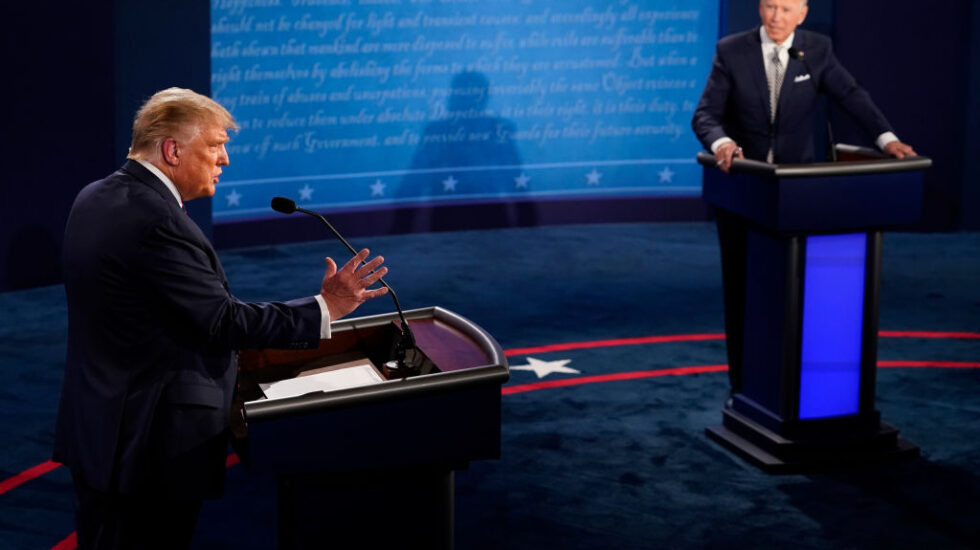The Republican National Committee voted on Thursday to require its 2024 White House hopefuls to boycott the Commission on Presidential Debates. Instead, candidates in the GOP primary must pledge their intention – in writing – to participate in party-sanctioned confabs.
The nonprofit commission, which is run by members of both parties and considers itself nonpartisan, was long a target of former President Donald Trump’s ire. In the run-up to the 2020 election, Trump withdrew from a debate the commission hosted that October after organizers made it virtual following his Covid diagnosis.
In late 2019, he tweeted that the commission was “stacked with Trump Haters & Never Trumpers,” and he suggested that he would skip the debates altogether. And in September 2020, after the first presidential debate in Cleveland, Trump took aim at moderator Chris Wallace, then a Fox News host, tweeting that the event amounted to a “two on one.”
Trump often behaved erratically at debates, talking over opponents and resorting to petty insults. After failing to force Trump to follow agreed-upon rules, Wallace told The New York Times “I’m just sad with the way last night turned out.”
“I never dreamt that it would go off the tracks the way it did,” he added, saying “I’ve never been through anything like this.”
The Commission on Presidential Debates was established in 1987. The Wall Street Journal reports:
Earlier this year, the RNC made moves to try to choke off fundraising for the commission. Past debate sponsors have included large corporations, foundations and associations, according to the commission’s website.
RNC Chairwoman Ronna McDaniel, a close ally of Mr. Trump, said in a statement that the party would find “newer, better debate platforms” for future nominees.
“Debates are an important part of the democratic process, and the RNC is committed to free and fair debates,” she said. “The Commission on Presidential Debates is biased and has refused to enact simple and common-sense reforms to help ensure fair debates, including hosting debates before voting begins and selecting moderators who have never worked for candidates on the debate stage.”
The WSJ adds: “Before general election debates are held, there typically are numerous primary debates organized by television networks, the political parties and other interested groups. The commission has nothing to do with those events.”



